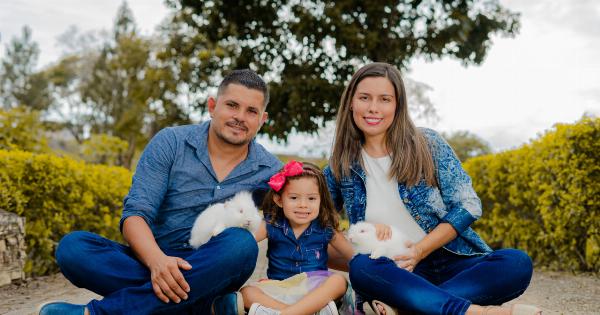Sibling rivalry is a common phenomenon that occurs in many families. While it is normal for siblings to compete and compare themselves against one another, there is often a belief that younger siblings have it easier than their older counterparts.
This notion stems from various factors such as parental leniency, perceived favoritism, and younger siblings learning from the mistakes of their older siblings. In this article, we will explore the dynamics of sibling rivalry and examine whether younger siblings truly have an advantage in terms of their upbringing and overall experience.
1. Parental Leniency
One of the arguments supporting the idea that younger siblings have it easier is that parents tend to be more lenient with them.
As parents gain experience through raising their older children, they often become more relaxed and less likely to impose strict rules and discipline on their younger offspring. This leniency can create a perception that younger siblings have a more relaxed and carefree upbringing compared to their older siblings.
2. Perceived Favoritism
Another factor contributing to the belief that younger siblings have it easier is the perception of favoritism. Older siblings may feel that their parents favor the younger sibling, giving them more attention, praise, and material possessions.
This perception can create resentment and amplify the feeling that younger siblings have an easier and more enjoyable life.
3. Learning from Older Siblings’ Mistakes
Younger siblings often have the advantage of learning from the mistakes and experiences of their older brothers or sisters. They can observe the consequences of their older siblings’ actions and make informed choices in similar situations.
This knowledge can help younger siblings avoid certain pitfalls and navigate life more smoothly, creating the illusion that they have it easier.
4. Age-Appropriate Privileges
As younger siblings grow up, they naturally reach certain milestones at a later age than their older siblings. This delay in achieving certain privileges, such as staying out later or having a cell phone, can be seen as an advantage.
The perception is that younger siblings are granted these privileges when they are more mature and responsible, making it appear as though they have it easier.
5. Comparisons and Pressure
While younger siblings may appear to have certain advantages, it is important to consider the pressures and expectations they may face.
Constantly being compared to their older siblings can create significant pressure to excel academically, athletically, or in other areas. This pressure can manifest in the form of high expectations and can contribute to a sense of competition between siblings, regardless of their birth order.
6. Parenting Styles
Parenting styles can vary significantly between families and even between siblings within the same family.
While some parents may be more lenient with their younger children, others may maintain consistent discipline and expectations for all their children. This variation makes it difficult to make a blanket statement that younger siblings universally have it easier than their older siblings. The perceived ease of growing up can greatly depend on individual circumstances and family dynamics.
7. Emotional Impact
Sibling rivalry, regardless of birth order, can have a lasting emotional impact on individuals. Whether younger or older, siblings may experience jealousy, resentment, or a sense of inadequacy due to comparisons and competition.
These emotions can negatively affect their mental well-being and relationships with their siblings, making it challenging to conclude that one sibling has it easier than another.
8. Unique Challenges
Each sibling faces their own unique challenges and struggles. While younger siblings may benefit from observing and learning from their older siblings’ experiences, they may also face their own set of difficulties.
For example, younger siblings may be subjected to more strict expectations and rules by their parents due to the mistakes or misbehavior of their older siblings. Each birth order carries its own advantages and challenges, making it difficult to determine definitively whether one sibling has it easier than another.
9. Sibling Bonds and Support
Despite the rivalry and competition, siblings often form strong bonds and offer support to one another. The sibling relationship can provide a valuable source of emotional support, guidance, and companionship throughout life.
Regardless of birth order, siblings can lean on each other during challenging times and celebrate each other’s achievements, creating a more balanced perspective of their individual experiences.
10. Embracing Individual Experiences
Ultimately, whether younger siblings have it easier than their older counterparts is subjective and dependent on various factors. Birth order is just one part of a person’s identity and upbringing.
It is essential to acknowledge and embrace each individual’s unique experiences and challenges rather than making broad generalizations based solely on birth order.





























